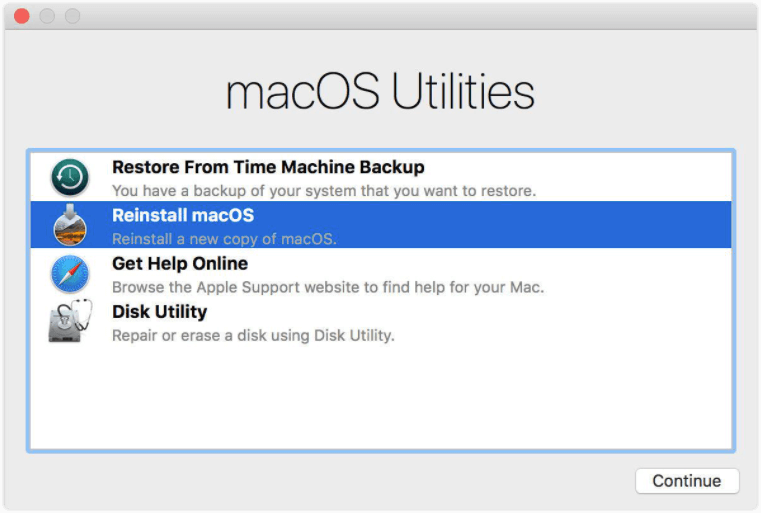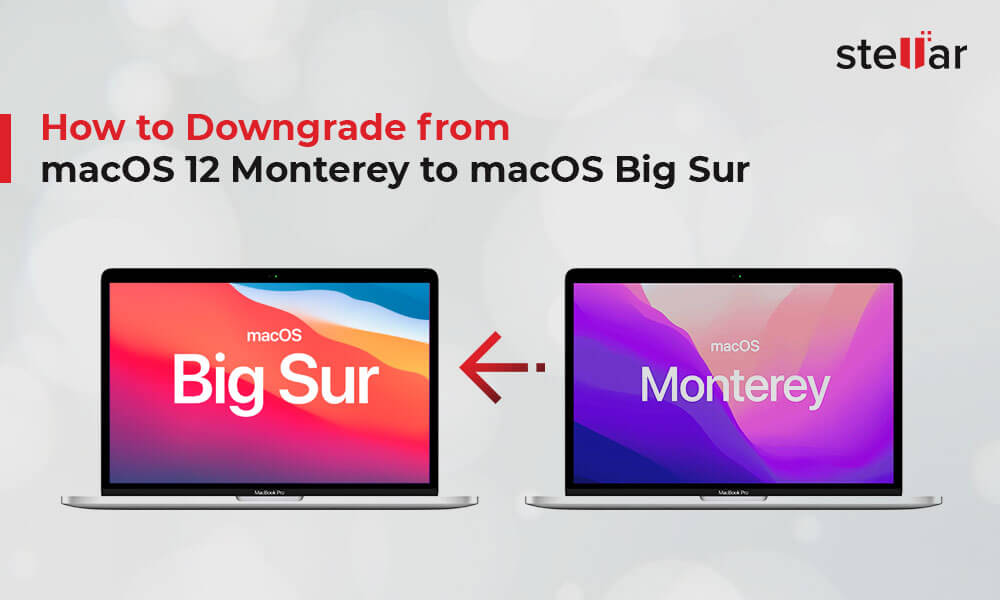

- #DOWNGRADE MAC OS BIG SUR HOW TO#
- #DOWNGRADE MAC OS BIG SUR INSTALL#
- #DOWNGRADE MAC OS BIG SUR UPGRADE#

That makes it easier to re-create them later.
#DOWNGRADE MAC OS BIG SUR INSTALL#
Whenever you perform a clean install of macOS, which is what you’re doing here, it’s a good idea to take screenshots of any custom settings you’ve created in apps or in System Preferences. Take screenshots of preferences and settings That way, if the native files don’t survive the reverse upgrade, you’ll be able to re-import the RTF files. So, for example, if you use Scrivener or Ulysses, export documents as RTF files. To mitigate this, it’s wise to export any documents you’ve created or worked on in the newer OS in a standard file format. So, for example, if you create a document or work on a file in a new version, whether it’s a beta or full release, of macOS and then try and open it in an older version, it may not work. Most of these are due to changes in file formats and settings between versions of the OS.
#DOWNGRADE MAC OS BIG SUR UPGRADE#
Reversing an upgrade carries with it a number of wrinkles and pitfalls.
Once in Setup Assistant choose to migrate your data from your Time Machine back up (Time Machine isn’t using APFS, yet, so this should work, for now). Choose Reinstall macOS and select the new drive name as your target. Change the name of your drive to something else. Change the format to MacOS Extended (Journaled). Choose the bootable installer as your startup disk. Press Option/Alt as you start up your Mac. Similarly, if you installed High Sierra on a Mac with an SSD and wanted to revert to Sierra. It is possible that you may have to follow these instructions in downgrading if you have installed Mojave on a Fusion drive or hard drive and want to revert to High Sierra or earlier. When Apple stopped trying to make APFS work on Fusion Drives back when it was beta testing High Sierra (an early version of the beta did support it on Fusion Drives), the company issued the following instructions to downgrade from the APFS version to a HFS+ version. Fusion Drives and Hard Drives got a similar file system change in macOS Mojave. It may be a little more complicated if you are reverting from Big Sur, Catalina, Mojave or High Sierra to a version of the macOS that predates them because Apple switched to a new file system (at least on SSD-equipped Macs) in High Sierra. Now your Mac should install the older version of the operating system. Access Wi-Fi settings from the Wi-Fi menu. You will need to connect to Wi-Fi because your Mac will need to connect to the internet during this process. Your Mac will shutdown and restart in Recovery mode. Choose the external drive with your installer as the startup disk and click Restart. Open System Preferences and click Startup Disk. Connect the bootable installer to your Mac. #DOWNGRADE MAC OS BIG SUR HOW TO#
Make a bootable installer on a memory stick – follow these instructions: how to create a bootable installer of macOS.






 0 kommentar(er)
0 kommentar(er)
